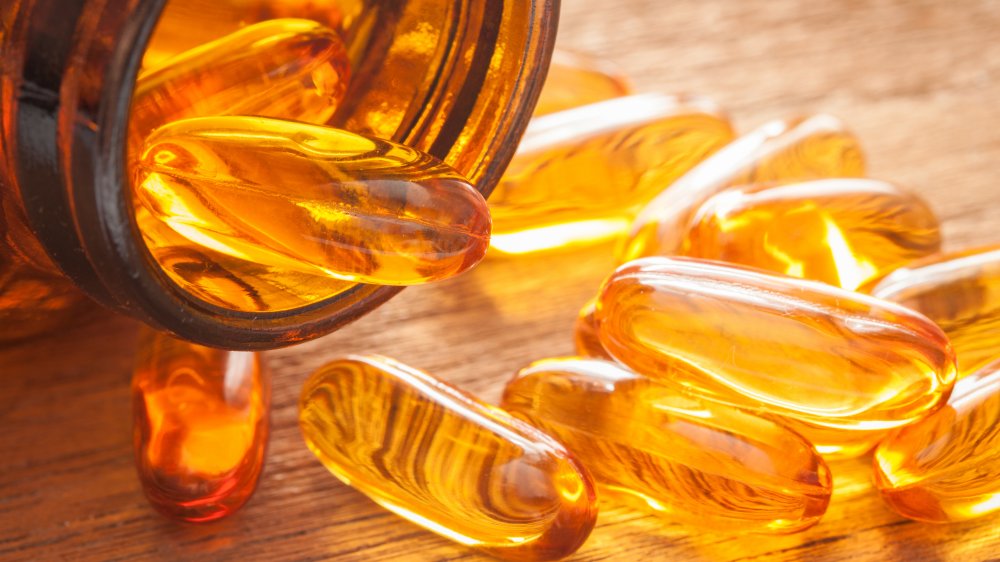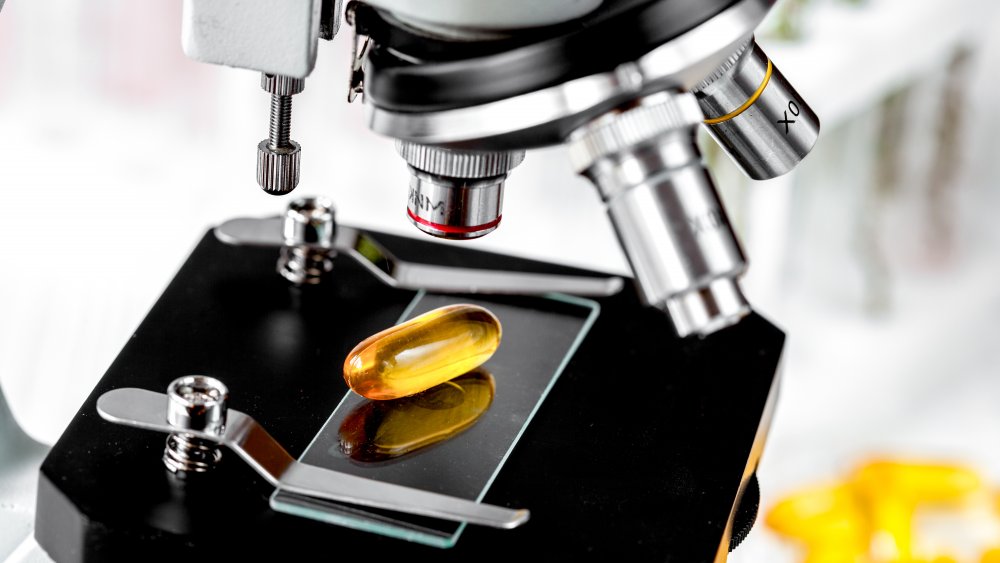The Truth About Kirkland Fish Oil
Kirkland fish oil, a Costco brand supplement, is known for being very economical, and it can be tempting to pick some up if you're in the market for fish oil. However, there are many questions as to the quality of the product, brought about by both consumers as well as scientific laboratories.
The fish oil was tested by Consumer Lab, a company based in Westchester County, New York that evaluates health and nutrition products. Consumer Lab found that bottle, which claims to contain 720 milligrams of omega-5, 6, 7, 9, and 11 fatty acids, only actually contains around 48 percent of the promised product (via Seattle Times).
In fact, Kirkland is facing a lawsuit brought about by a man in New York who purchased Kirkland Signature Wild Alaskan Fish Oil. Also named in the lawsuit is Trident Seafoods, the manufacturer of the product. Lawyers ran another test on the product for the plaintiff in the suit and found that only 40 percent of the advertised 330 milligrams of omega-3 fatty acid was present.
Kirkland fish oil failure
Fish oil is sold as a supplement to lower blood pressure, triglycerides, and cholesterol, as well as to benefit cardiac health. However, these claims are not evaluated or monitored by the Food and Drug Administration (FDA), which doesn't regulate nutritional supplements. This means they're not subject to the same standards as pharmaceutical drugs.
Two important ingredients in fish oil are eicosapentaenoic acid (EPA) and docosahexaenoic acid (DHA). The EPA aids in the reduction of inflammation, while DHA, simplified, increases cellular movement that helps lower cholesterol (Psychology Today). The label on the Kirkland fish oil states that a serving is one soft gel taken two times daily, and this will provide approximately 500 mg of EPA/DHA, but they do not offer any information regarding a distinction between the amounts of each (via My Gene Food).
While Trident Seafoods released a statement regarding the lawsuit stating the product is "regularly tested to verify purity, potency, safety, and stability" by a third-party laboratory, that may not be enough for anyone to recommend chucking a bottle into your basket the next time you hit up Costco.

